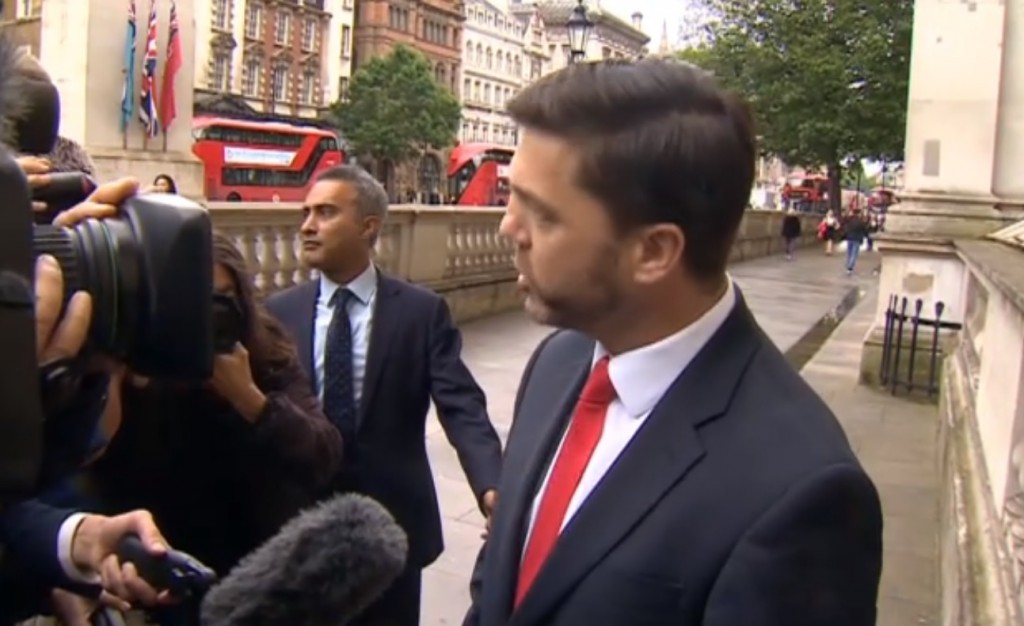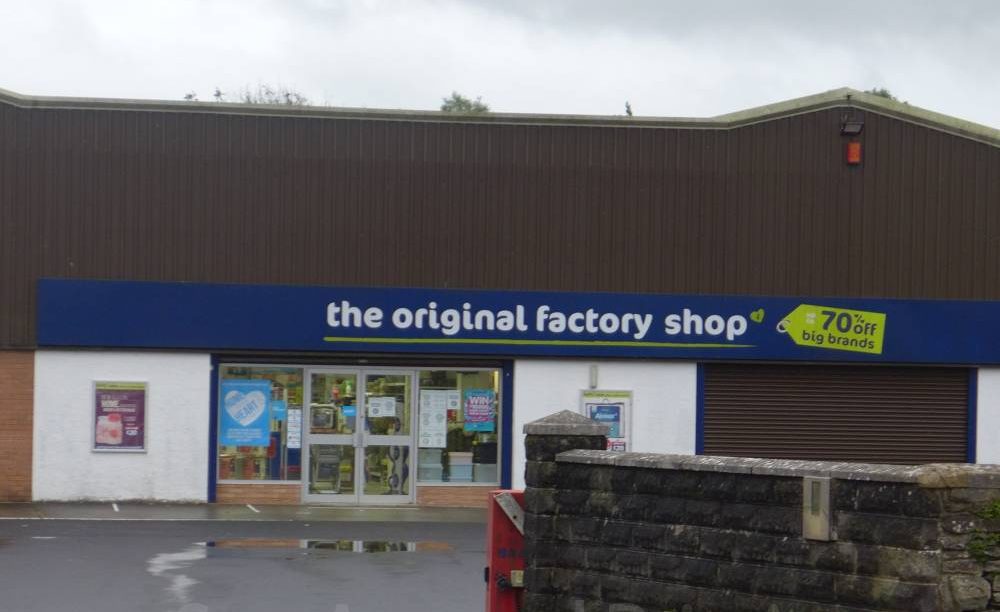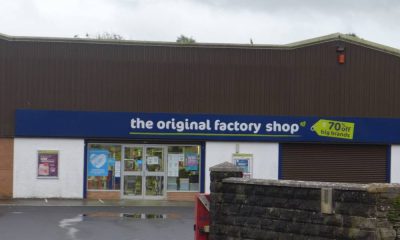News
Invasion of Ukraine and spiralling energy costs steer Chancellor’s Spring Statement

THE CHANCELLOR, Rishi Sunak, has warned the invasion of Ukraine “presents a risk to our recovery” as he promised to provide “security for working families” with a new “Tax Plan” at the Spring Statement.
The Chancellor explained his desire to offer people “security”. He said: “We will confront this challenge to our values not just in the arms and resources we send to Ukraine but in strengthening our economy here at home.
“So, when I talk about security, yes – I mean responding to the war in Ukraine.
“But I also mean the security of a faster growing economy.
“The security of more resilient public finances.
“And security for working families as we help with the cost of living.
Preseli Pembrokeshire MP, Stephen Crabb said: “I have consistently argued that fuel tax is too high for rural communities like Pembrokeshire. The Chancellor’s landmark decision to cut Fuel Duty by 5 pence will be welcomed by the thousands of individuals and businesses across our County who rely on road transport. The big increase in the threshold for paying National Insurance Contributions to £12, 570 is another good measure which will benefit many people on lower incomes.”

“When compared to the rest of the country, Wales has a significantly higher proportion of poorly insulated homes. Abolishing the tax on insulation and other energy-saving measures is a really practical way to help more people cut their energy costs and stay warm. Improving home insulation is one of the quickest ways to help shield people from high gas prices.”
“Overall today’s package makes a strong start in tackling the cost of living crisis. I suspect the Chancellor may need to bring forward further measures in due course depending on how long the surge in energy prices continues. I will keep making the case for practical steps that make a real difference for people in Pembrokeshire, especially those on the lowest incomes.”
ENERGY COSTS
Sunak says he is announcing three measures to help with energy costs.
Fuel duty is being cut by 5p a litre, Sunak says.
He says this is the biggest cut to fuel duty ever. It will be in place until March next year.
It is worth more than £5bn.
And it will take effect from 6pm
VAT CUT ON ENERGY SAVING DEVICES
Sunak says VAT being cut to zero on energy saving devices, such as solar panels.
This could cut the cost of having a solar panel installed by £1,000.
NATIONAL INSURANCE THRESHOLD
Sunak said that the national insurance threshold was due to go up by £300. Instead, it will go up by £3,000, he says.
This means it will be equivalent to the income tax threshold
That is a £6bn tax cut for 13 million people. And that amounts to a tax cut for people of £330 a year, he says.
It is the single biggest tax cut for a decade, he says.
He says the IFS said it was the best step to take.
And he says 70% of workers will have their taxes cut by more than they pay for the new levy, he says.
HEALTHCARE
Sunak says the NHS now has a dedicated tax supporting it: the health and care levy.
But that is compatible with reducing taxes on families, he says.
Over the last decade it has been a Conservative mission to cut taxes for working people, he claims.
Some opposition MPs were laughing at this.
BUSINESS RATES
Sunak says the business rates discount coming into effect next month for retail, hospitality and leisure businesses will save them up to £110,000.
A typical pub will save £5,000, he says.
INFLATION
Inflation will average at around 7.4% this year, – meaning an extremely painful squeeze on families, with real wages likely to fall through the year for millions of workers.
Last October, it forecast inflation of 4% this year (which would already have been double the Bank of England’s 2% target).
We learned this morning that inflation hit 6.2% in February. The energy price cap is 54% in April (with another rise feared in the autumn), and commodity prices are being pushed up by the Ukraine war, so 2022 will bring much more pain to households.
TORIES IN WALES
Welsh Conservatives have welcomed the cut in fuel duty in the Spring Statement after leading the campaign in Wales for the Chancellor to take action as prices at the pump continue to rise.
The Chancellor is taking direct steps to support hard-working families in Wales, in light of increased financial pressures due to the war in Ukraine, the rising price of gas and oil and shortages in goods by:
• Scrapping VAT on renewable energy sources to help homeowners to reduce their energy costs, saving £1,000 in tax and £300 in energy costs per year.
• Equalising the tax threshold at £12,570 in July before workers’ pay income tax or national insurance, saving the typical employee £330 a year.
• Cutting fuel duty by 5 pence per litre for all fuel types from 6pm this evening, only the second time in twenty years.
• Doubling the Household Support Fund to £1 billion to help those families most in need.
The announcement follows the UK Government’s action earlier in the year to give households a £150 rebate through Council Tax and a £200 energy discount in October.
WELSH SHADOW MINISTER FOR FINANCE
Commenting on the news, Welsh Conservative Shadow Minister for Finance and Member of the Welsh Parliament for Monmouth, Peter Fox MS, said: “The Chancellor has made it clear today he has a clear plan to tackle the cost of living by protecting jobs, growing the economy and leaving more money in people’s pockets to support family budgets. I particularly welcome the action by the Chancellor to cut fuel duty after our campaign to support hard-working Welsh families.
“However, whilst the UK Conservative Government is taking steps to support families, Labour minister in Cardiff Bay continue to play politics with the cost of living.
“We need to see more action and less words from them. If Labour in Wales were serious about easing the financial pressures on Welsh families, Labour ministers would use devolved levers and cut income tax in Wales.
“In stark contrast to Rishi Sunak in cutting the cost of politics, Labour and their nationalist coalition partners are looking to increase the number of unknown politicians in the Cardiff Bay bubble.
“The additional £12 million a year would be better spent on hundreds of extra nurses and doctors a year to tackle Wales’ NHS waiting time crises and ambulance responses times.
“Once again, Labour ministers have their priorities wrong.”
THE VIEWPOINT FROM WALES
Welsh Government Finance Minister Rebecca Evans has said the Spring Statement has let down people struggling with the rising costs of living.
The Chancellor’s Spring Statement was delivered amidst widespread calls to deliver more support to help people pay bills. The Welsh Government had called for measures including increasing welfare benefits, a windfall tax on big energy companies, and introducing a low income energy tariff to better target support to lower income households.
Despite the OBR almost doubling its inflation forecast to 7.4% from 4% for this year, the Chancellor limited the uplift in benefits to just 3.1% – after a below inflation increase of 0.5% last year.
April will see more pressure on household budgets, with energy bills and National Insurance contributions both rising.
Rebecca Evans, Minister for Finance and Local Government, told The Pembrokeshire Herald: “People will be right to feel let down by today’s threadbare statement. Bills are rising rapidly and disposable income is falling, but there is not enough in today’s statement that recognises the struggle many are facing. It’s an ideological, regressive statement from the Chancellor that lacks practical measures to help those who need help the most – there is nothing for those who cannot work and those on lower incomes.”
“The UK Government has squandered the opportunity to provide meaningful support. It exposes an out-of-touch Chancellor and exacerbates the fairness gap running through Westminster’s lacklustre approach to the cost of living crisis.”
Last month the Welsh Government confirmed a £330m cost of living support package, included extended £200 winter fuel payments, a £150 cost of living payment and more money through the Discretionary Assistance Fund.
The Minister also told this newspaper: “In Wales we provided a cost of living support package worth nearly double the equivalent support provided in England. We encourage everyone to familiarise themselves with what is available and to take advantage of the support on offer. But we also recognise it doesn’t provide all the answers, and that many of the key levers such as welfare support lie in Westminster. We will continue to call on the UK Government to join us in providing a full crisis response to help people with the rising cost of living.”
WELSH LIB DEMS
The Welsh Liberal Democrats have accused Welsh Conservative MPs and MSs of “utterly failing” to make their voices heard after the Chancellor Rishi Sunak delivered his spring statement today.
According to the Welsh Liberal Democrats, the announcement contained nothing of significance to help people in rural areas deal with the cost of living crisis, particularly the extortionate costs of heating faced by those living in rural Wales.
Commenting Welsh Liberal Democrat Leader Jane Dodds MS told The Pembrokeshire Herald: “Today the Chancellor has given rural regions nothing to help them cope with the crisis my residents are facing in being able to heat their homes. Welsh Conservative MPs are clearly failing to influence the Chancellor despite almost exclusively representing rural parts of Wales.
“The cut to fuel duty is welcome, but only will take between £2-£3 off filling your car. It alone does not rise to the occasion. What we would have liked to have seen was the rural fuel duty relief scheme expanded to parts of Wales like Ceredigion, Powys and Gwynedd. We have been calling for this since 2015, but have been blocked by the Conservatives at every point.
“More importantly, the Chancellor has refused to introduce a windfall tax on oil and gas companies that we would want to use to double and expand the warm homes discount. Oil and gas companies are making record-breaking profits while the rest of us are suffering.
“This is especially true in Mid & West Wales where in some counties up to 23% of households live in fuel poverty.
“Finally, the Chancellor made no announcement to protect those reliant on heating oil and LPG. With large numbers of households across rural Wales off the national gas grid, the bare minimum the Government could have announced was a plan to include oil and LPG into the energy price cap or to implement an automatic fuel duty rebate if the price of heating oil reaches over certain levels.
“This spring statement has made it abundantly clear that Welsh Conservative MPs are failing to make their rural constituents’ voices heard in an increasingly London and southeast centric Government.”
Crime
Pembroke Dock woman admits breaching community order

Magistrates revoke sentence after missed appointments
A PEMBROKE DOCK woman has admitted breaching the terms of a community order.
Shannon Charge, aged 30, of Pater Court, appeared before Haverfordwest Magistrates’ Court on Monday (Feb 2).
She admitted failing to attend a scheduled probation appointment and a drug dependency appointment.
Magistrates revoked the existing community order and ordered her to pay £60 in court costs.
The court heard the order related to earlier offences, for which she had been made subject to rehabilitation and drug treatment requirements. A further review hearing is listed for March 2.
Crime
Milford Haven man given extra unpaid work after breaching court order

Magistrates add hours after missed appointments
A MILFORD HAVEN man has been ordered to complete extra unpaid work after breaching the terms of a community order.
Peter Jones, aged 33, of Precelly Place, appeared before Haverfordwest Magistrates’ Court on Monday (Feb 2).
He admitted failing to attend scheduled unpaid work and a probation appointment earlier this month.
Magistrates varied the order, imposing an additional 10 hours of unpaid work. Jones was also ordered to pay £60 in court costs.
The court heard the original community order followed an earlier conviction.
Business
St Clears discount store in closing down sale after chain enters administration

A WELL-KNOWN discount retailer in St Clears is advertising a closing down sale after its parent company fell into administration, raising fresh concerns about the future of another high street store in west Wales.
The Original Factory Shop, which trades from Pentre Road in St Clears, has launched an “up to 30% off” sale as administrators attempt to secure the future of the business.
The chain, which sells clothing, homeware, garden products, toys and everyday essentials, appointed joint administrators Rick Harrison and James Clark of Interpath Advisory last week.
Founded in 1969, the retailer operates 137 stores across the UK and employs around 1,180 staff.
In a statement, Interpath said the company had faced difficult trading conditions common across the high street, including rising costs, weaker consumer spending and increased employment expenses. It added that problems with a third-party warehouse and logistics provider had also disrupted sales.
Despite the administration, the joint administrators say all stores will continue trading for now while options for the business are explored. The company’s online store is set to close.
Rick Harrison, managing director at Interpath and joint administrator, said the retailer had long been a fixture in town centres across the country but had struggled in the current climate.
Over the coming weeks, administrators will review whether parts of the business can be sold or restructured.
However, signage and social media posts from the St Clears branch suggest uncertainty locally, with the store promoting a closing down sale and urging shoppers to “grab a bargain while stocks last”.
The St Clears outlet is one of the last remaining branches in west Wales. Stores in Fishguard, Haverfordwest and Milford Haven closed last year. The Cardigan branch is also understood to be running a similar clearance sale.
The loss of another discount retailer would mark a further blow for smaller town centres already facing reduced footfall and rising costs.
-

 Health5 days ago
Health5 days agoConsultation reveals lack of public trust in health board
-

 News6 days ago
News6 days agoCaldey still unsafe, survivors warn — despite Abbey’s reform claims
-

 Community6 days ago
Community6 days agoPembrokeshire students speak at national Holocaust Memorial Day event
-

 News2 hours ago
News2 hours agoPrincess of Wales visits historic Pembrokeshire woollen mill
-

 News6 days ago
News6 days agoKurtz raises Gumfreston flooding in the Senedd as petition deadline nears
-

 Crime4 days ago
Crime4 days agoPembroke man accused of child sex offences sent to Swansea Crown Court
-

 Education6 days ago
Education6 days ago‘Vulnerable teen’ questioned by police at Milford Haven School
-

 Education6 days ago
Education6 days agoAttendance concerns at Milford School reflect wider issue raised at the Senedd

































